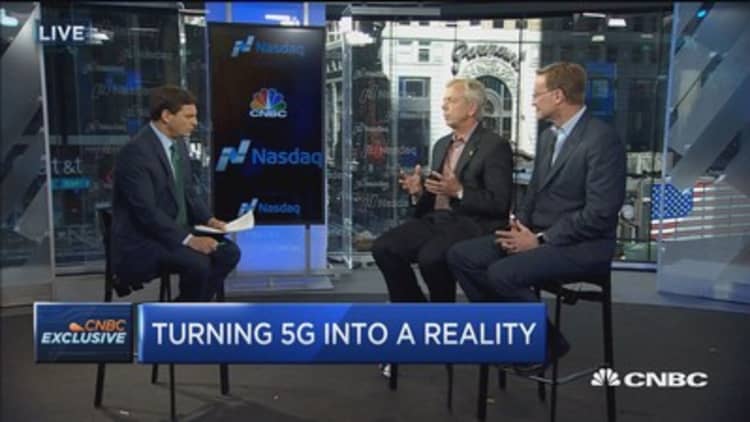
Verizon Communications announced a deal Tuesday that will further its commitments to growing its wireless broadband network nationwide, as the landscape for telecom companies only becomes more competitive and crowded.
The agreement calls for Corning, a New York-based manufacturer of materials primarily for industrial and scientific applications, to provide up to 12.4 million miles of optical fiber each year for Verizon to purchase starting in 2018 and lasting until 2020, with a minimum purchase commitment of $1.05 billion.
"This new architecture is designed to improve Verizon's 4G LTE coverage, speed the deployment of 5G, and deliver high-speed broadband to homes and businesses of all sizes," Verizon said in a statement.
Verizon launched One Fiber, what has been called a more "nontraditional Fios build" for the company, in Boston last year.
On its website, Verizon describes Fios as giving consumers "a 100 percent fiber-optic network that allows you to enjoy the internet speed you crave, the TV channels you love and a home phone that's reliable."
"Our plans [in Boston] identified a shortfall in fiber supply, and Verizon has been working with business teams to forecast demand and fill supply gaps with existing suppliers," Verizon Chief Supply Chain Officer Viju Menon said in a statement.
"Securing the required volume of optical fiber and hardware solutions with Corning will ensure we meet our planned rollout schedules."
Verizon said Tuesday it's been "reinventing" a network architecture of late — one that supports a "next-generation fiber platform" to support all of its business segments.


